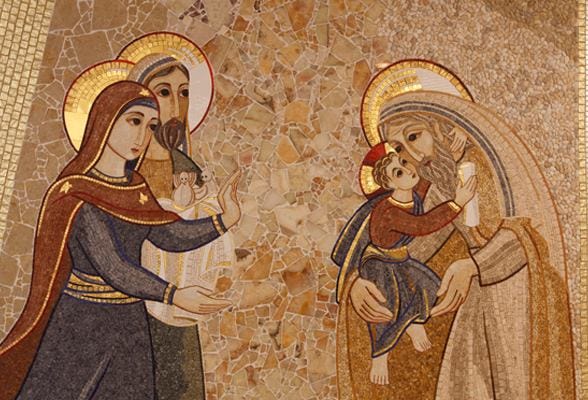Wearing Our Lives Lightly

Growing up in and around New Orleans, I celebrated January 6 as the opening of carnival season, the several weeks of hedonism that lead up to Mardi Gras, Fat Tuesday, which precedes Ash Wednesday and the long, bleak penances of Lent. We went to church, and we ate a king cake, a ring of sweet brioche covered in several inches of sparkling purple, green, and gold sugar, with a plastic baby tucked somewhere inside. If you get the piece with the baby, you have to buy the next cake. You eat a lot of cake during carnival.
I knew all this was somehow tied up with Jesus, in that tangled web of sacred and profane that is Louisiana Catholicism. I knew that the baby in the cake was the baby in the manger and the king of the cake spoke to the king of creation and the three wise kings who came to his manger bearing gifts. I knew it, somehow, even if I couldn’t have told you.
Now, I know all about Epiphany and its historical significance. Excuse my pedantry, but this is one of the oldest feasts of the church, predating the celebration of the nativity. We now focus exclusively on the three wise men presenting the infant Christ with his kingly gifts, but in the historic church, we used to include his baptism and presentation and the wedding at Cana.
These feasts are all part of Christmas—which is still happening, according to the old ways, until the feast of the Presentation of the Lord on February 2—a prolonged celebration of God made manifest.
Emmanuel, God with us.
And all the liturgical feasts and solemnities of the season speak of our amazement to find him here among us, in our flesh, in our world. The three wise men find him by the stars. Simeon recognizes Him as the Messiah and says he can finally die happy. John the Baptist watches a dove descend from heaven and hears a voice cry, “This is my beloved son.” And at Cana, some lucky wedding guests witnessed his first public miracle, when he saved the party by turning some water into the very best wine.
Awe, wonder, feasting. I’m pretty good at those Epiphany-type things.
But there’s another story of recognizing God among us, and it’s a story of fear and cowardice. I’m pretty good at those things too.
Herod didn’t see the coming of Christ as a good thing; he saw it as a threat to his comfort and security and power. This new king might take something from him he didn’t want to give. So even as he feasts and wonders—it’s Herod who sends the wise men, after all—he destroys. We celebrate that feast day too, the Feast of Holy Innocents, December 28, when we remember all the baby boys Herod murdered out of fear of losing his place in the world. By remembering them, we remember the Herods among us too. There’s definitely some Herod in me, living from fear and self-protection, not wonder and love.
“At some point we’re going to lose our lives,” my parish priest said in his Epiphany homily. He wasn’t talking about big-D Death, but the countless little-d deaths we experience in our lifetimes. Those deaths that strip away what we so desperately don’t want to lose, and yet, somehow, tend to result in the most mysterious gains.
Epiphany tells us to wear our lives lightly. To welcome or at least expect the little d-deaths with expectation and wonder at our little r-resurrections. To be like Simeon, who saw God among us and said, I can go in peace. To be like John the Baptist, who said I must decrease, and he must increase. To understand, as Jesus said, that losing my life means gaining it.
And this is the story of Mardi Gras, too. It’s often derided as a feast of debauchery now totally void of any Christian significance, but as someone whose spirituality was deeply formed by those parties on the streets of my hometown, I want to tell you that’s just not true. It’s all tangled up down there, like everything else. A beautiful mess of God and man and sanctity and sin. But above all, carnival always speaks to me of the persistent joy of epiphany, of God among us, of our days with the bridegroom before he is taken. During these weeks we celebrate a God of abundance and a God of humanity. A God who wears this same flesh, whose wounds we can touch.
But I should use the past tense. I haven’t properly celebrated Mardi Gras since I left home in Louisiana, and though my sweet friend sent me a king cake all the way to Northern Michigan, it may be all the carnival I’ll get this year. And so Carnival and epiphany, those joyous seasons, are also times of mourning for me. I bite into the Haydel’s bakery king cake the UPS man delivered in a blizzard, and close my eyes, let childhood and joy rush back to me first, then homesickness, then fear. What if I can never go back?
This is a little d-death I may never fully embrace, and my Herod heart trembles even as I stand in church and sing Emmanuel, God with us, even here, in the blowing snow and the bitter cold, a thousand miles from home.




